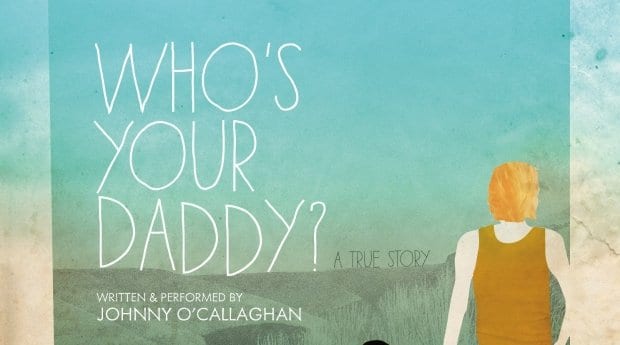Parenthood. For some gay men the very notion is anathema, a foolish decision to emulate heterosexuals in order to live a lifestyle of restriction, conventionality and downright boredom. And, hey, more power to them. But there are quite a few of us who always wanted to raise a child and have a family. So we explore our options, be it surrogacy or co-parenting or adoption, and plot out our path to papa-hood.
For film and television actor Johnny O’Callaghan, the decision was far less planned and far more unusual than most. “I’ve always wanted a family,” O’Callaghan says from his California home. “But I thought I would do it with a partner. It was always sort of in the background.”
It was a chance meeting in Africa that brought the Irish Canadian actor’s whimsical hope into sharp, clear focus. O’Callaghan had hit a personal low point, frustrated by his career in Hollywood and the discovery of his rock-star boyfriend frolicking in their bed with twins. Depressed and directionless, he agreed to travel to Uganda to help a friend who was filming a documentary about an AIDS orphanage.
It was there that he met three-year-old Odin, and life changed irrevocably. “I felt he was my son,” O’Callaghan says. “He crawled into my lap, and that was it. So I just pursued it.”
What followed was a truly Herculean set of tasks. O’Callaghan endured the usual spate of tests, meetings and evaluations necessary for adoption in North America, as well as those put forth by Ugandan authorities. He also needed to alternately cajole, bribe and woo officials in the African country in order to bring his son home. It took eight months.
“I think most people, when they met us in LA or New York, assumed it was a very traditional adoption. They had no idea. The whole thing is a bit of a mind-fuck because you don’t know day by day if it’s going to happen. It wasn’t until we were actually on the plane, leaving, that I started to breathe.”
In the eight years since then, O’Callaghan’s life has changed dramatically. He pursued his master’s in psychology, then opened a therapy practice to support his family and began writing about the long, circuitous journey to fatherhood.
“I just laughed at what I did to adopt this kid,” O’Callaghan says. “So I wrote it down, and I read it at a little reading. There were some theatre people there who said they wanted to produce it, and now there’s a movie happening and they’ve hired me to be the screenwriter.”
The play, a one-hander called Who’s Your Daddy, has earned rave reviews in New York, Edinburgh, Ireland and LA. In it, O’Callaghan describes the hoops he jumped through to adopt Odin and also the varied (and wickedly funny) reactions of his friends and slightly racist Irish family.
He’s bringing the show to the East End Performance Crawl, a new solo-performance festival presented by Crow’s Theatre in Toronto. For 12 days, neighbourhood venues like The Purple Purl, The Flying Yogi and Lil’ Bean N’ Green Café will host 23 performances by artists from all over North America. It’s the perfect showcase for O’Callaghan’s blazingly funny, touching and occasionally naughty show.
“The play is a big adventure, and I think it resonates with a lot of people who have adopted,” O’Callaghan says. “There are so many obstacles. But we have obstacles no matter what. I think that’s the nature of life. I think I chose my learning in being a parent, and that’s very soul fulfilling.”
East End Performance Crawl
Wed, May 21–Sun, June 1
Who’s Your Daddy runs at Loft Apartment, 10 Hastings Ave
crowstheatre.com
johnnyocallaghan.com

 Why you can trust Xtra
Why you can trust Xtra


